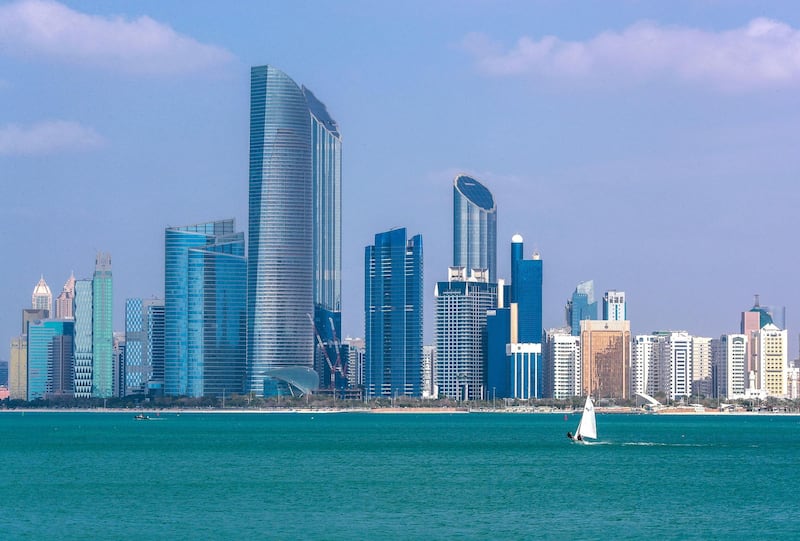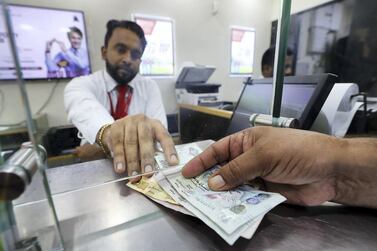Foreign direct investment to the UAE surged 44 per cent to reach nearly $20 billion (Dh73.45bn) in 2020, the government said on Saturday.
"Despite the UN's estimates that global foreign direct investment flows decreased by 42 per cent in 2020 over Covid-19, the UAE witnessed 44 per cent growth in FDI flows in 2020, compared to 2019, to reach Dh73bn," Sheikh Mohammed bin Rashid, Vice President and Ruler of Dubai, said in a tweet.
"Good crisis management is a guaranteed investment," he added.
Despite the UN's estimates that global foreign direct investment flows decreased by 42% in 2020 over COVID-19, the UAE witnessed 44% growth in FDI flows in 2020, compared to 2019, to reach AED73 billion. Good Crisis management is a guaranteed investment.
— HH Sheikh Mohammed (@HHShkMohd) May 15, 2021
The UAE's significant inflows of FDI last year in the middle of the pandemic were largely due to Adnoc monetising some of its non-core assets.
Last year, Adnoc helped attract Dh62bn ($16.8bn) in foreign direct investment to the UAE, mainly through various multibillion-dollar transactions signed in the midstream and infrastructure segments.
Over the past four years, the state-owned company helped drive Dh237bn in FDI flows to the UAE.
The national oil company opened up partnership opportunities across its midstream and real estate sectors to allow foreign private equity and pension funds to pool in capital.
In July, a consortium of the world’s leading infrastructure and sovereign wealth funds signed an agreement worth $20.7bn to invest in Abu Dhabi’s natural gas pipeline infrastructure. The transaction, the largest single global energy infrastructure deal last year and the Middle East's biggest, will unlock $10.1bn of foreign investment into the UAE.
Dubai, the UAE's financial, transportation and trade hub, attracted Dh24.7bn ($6.7bn) in FDI last year, through 455 projects, according to government data published in April.
The inbound FDI created an estimated 18,325 new jobs in the emirate last year, according to data from the Dubai FDI Monitor released by the Dubai Investment Development Agency (Dubai FDI), an agency of Dubai Economy. It did not provide comparative figures for 2019.
The large inflows to the UAE come amid the country's plans to double the size of its economy over the coming decade. The Ministry of Economy aims to drive efforts to expand the size of the economy to reach Dh3 trillion over the next 10 years.
The UAE's economy is set to grow by 2.5 per cent this year, and its non-oil economy by 3.6 per cent, according to estimates from the Central Bank of the UAE. The economy is forecast to expand 3.5 per cent in 2022 and non-oil growth will rise to 3.9 per cent.
The UAE has also introduced a number of regulatory changes – such as amendments to the commercial companies' law and the offer of citizenship to talented residents – to support its plan to boost output and attract FDI.
"The next phase" of FDI-accelerated growth will witness more initiatives to raise the efficiency of the business environment, enhance investor confidence and increase opportunities in priority sectors, Abdullah bin Touq Al Marri, the minister of economy, said on Saturday.
44.2 % نسبة نمو الاستثمارات الأجنبية المباشرة الواردة إلى #الإمارات خلال 2020، ووزير الاقتصاد يؤكد أن المرحلة المقبلة ستشهد مزيداً من المبادرات لرفع كفاءة بيئة الأعمال وتعزيز ثقة المستثمرين وزيادة الفرص بالقطاعات ذات الأولوية pic.twitter.com/XczsNDWflN
— UAEGOV (@uaegov) May 15, 2021








